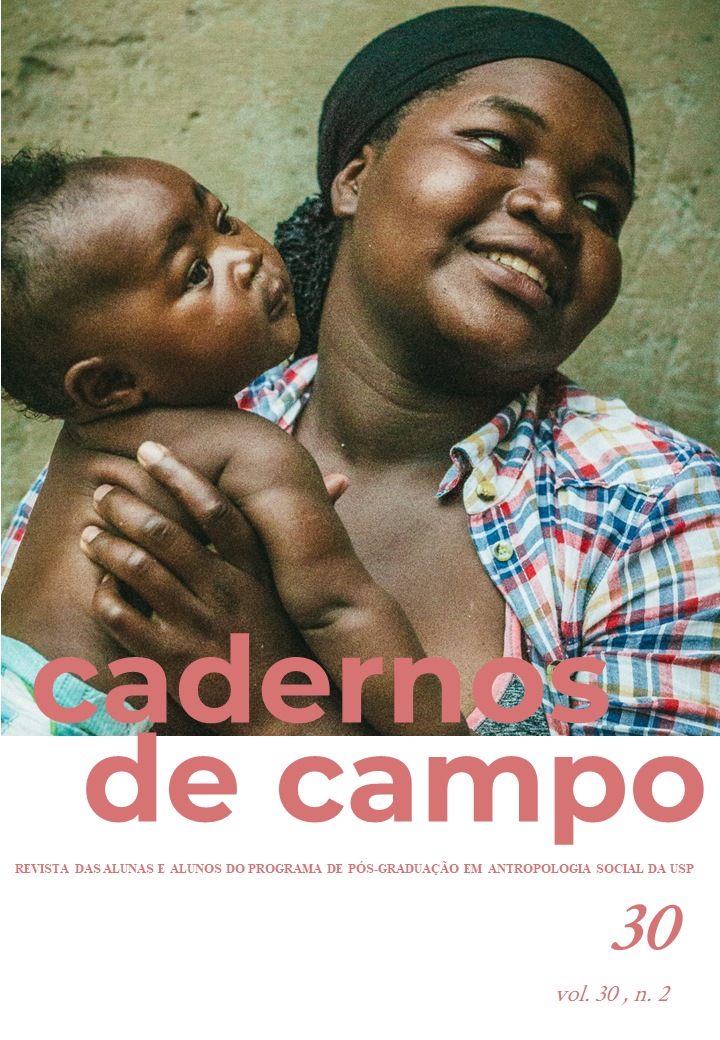The Incomplete Domestication of Wauja Women
DOI:
https://doi.org/10.11606/issn.2316-9133.v30i2pe193357Keywords:
Xingu, Arawak, Sexuality, Schooling, Globalization, Patriarchy, RankAbstract
In 1981, the Wauja women of Central Brazil, despite burdens they endured due to their gender, nevertheless enjoyed certain freedoms that men did not. Among these were greater freedom of movement around the village, and freedom to speak privately with women from any household. These freedoms were not trivial, and gave women privileged access to information of all kinds (“gossip”). In this way, women were able to shape community perception of events in ways that men could not. Women’s labor and economic contribution, in those days, was considered as essential as that of men. Four decades later, Wauja women no longer exchange news with other women as they walk to the river together to draw water. Instead, access to information is increasingly shaped by digital devices, which many young married women do not own. These women often live as their husbands’ economic dependents, because men earn salaries and control the bank accounts. How did women’s lives change so much in a single generation, and how are Wauja women responding?
Downloads
References
BASSO, Ellen B. 1985. A Musical View of the Universe: Kalapalo Myth and Ritual Performances. University of Pennsylvania Press.
CROCKER, William H.; CROCKER, Jean. 2004. The Canela: Kinship, Ritual, and Sex in an Amazonian tribe (2nd ed.). Califnornia: Wadsworth Publishing Company.
FRANCHETTO, Bruna. 1996. “Women among the Kuikuro.” Translated by Christopher Peterson. Estudos Feministas, vol. 4, no. 1: 225–39.
FAUSTO, Carlos. 2016. "How Much for a Song? The Culture of Calculation and the Calculation of Culture." BRIGHTMAN, Marc; FAUSTO, Carlos; GROTTI, Vanessa. (Eds.). Ownership and Nurture: Studies in Native Amazonian Property Relations. New York: Berghahn Books, 133-155.
GREGOR, Thomas. 1977. Mehinaku: The Drama of Daily Life in a Brazilian Indian Village. Chicago: University of Chicago Press.
GREGOR, Thomas. 2008. Anxious Pleasures: The Sexual Lives of an Amazonian People. University of Chicago Press.
LEA, Vanessa R. 2013. "The Sound of Silence (Paul Simon)." Cadernos Pagu 41: 87-93. DOI 10.1590/S0104-83332013000200009
NOVO, Marina Pereira. 2019. "Dangerous desires: the affects (and affections) of cash transfer programs among the Kalapalo from the Aiha Village (Upper Xingu, Mato Grosso, Brazil)." In: BALEN, Maria Elisa; FOTTA, Martin. (Eds.). Money from the Government in Latin America. London and New York: Routledge, pp. 130-144.
NOVO, Marina Pereira. 2018. ‘“Esse é o meu patikula”: uma Etnografia do Dinheiro e Outras Coisas entre os Kalapalo de Aiha’. São Carlos: PhD Thesis, Universidade Federal de São Carlos.
OVERING, Joanna. 1986. “Men control women? The 'catch 22' in the analysis of gender.” International Journal of Moral and Social Studies, vol. 1, no. 2: 135-156.
REGITANO, Aline de Paula. 2019. “Cuida Direitinho”: cuidado e corporalidade entre o povo Mehinako. Campinas: Master’s Thesis, Universidade Estadual de Campinas.
WEIGHT, Michael D.; KEEFE, Earl. 2016. "Partible Paternity and Female Choice: Comment on Ellsworth et al." Current Anthropology, vol. 57, n. 1: 96-97. DOI 10.1086/684842
WAUJA ONAPÃ (Wauja Song). 2021. Directed by Piratá Waurá, Associação Indígena Tulukai.
Downloads
Published
Issue
Section
License
Copyright (c) 2021 Cadernos de Campo (São Paulo, 1991)

This work is licensed under a Creative Commons Attribution-NonCommercial-ShareAlike 4.0 International License.
I authorize Cadernos de Campo Journal of Anthropology to publish the work of my authorship/responsibility, as well as I take responsibility for the use of images, if accepted for publication.
I agree with this statement as an absolute expression of truth. On my behalf and on behalf of eventual co-authors I also take full responsibility for the material presented.
I attest to the unpublished nature of the work submitted





